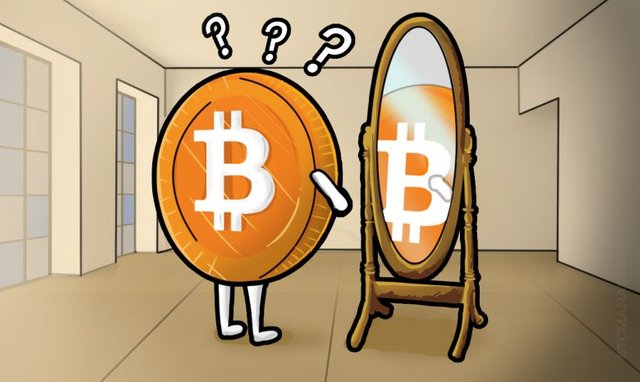
With the upcoming Bitcoin ETF of the Winklevoss brothers, the marketing seems to be anticipating on a potential rise. The altcoins overal take beatings when it comes to it's value. Although this may very well be the rumor in China where the People's bank of China is tightning trading, bitcoin trading, in general.
But that's not all, since we still deal with a potential hardfork of our ouw bitcoin. When surfing the internet I found this very interesting article which I would to share:
On March 11 the SEC will decide if it approves the Winklevoss’ Bitcoin ETF COIN. Approval would be an extremely bullish signal but depends on how the SEC assesses the risk-reducing measurements of the ETF. COIN also provokes the question, what Bitcoin exactly is - and makes the answer crucial.
The US exchange regulatory body, the SEC, will make the final decision, if the Bitcoin ETF COIN will be approved, on March 11. On this date it will be nearly four years since the Winklevoss twins submitted the first draft of their ETF to the SEC.
COIN, as the ETF is known, could be a perfect instrument to enable established and institutional investors to profit from the rise in the price of bitcoin. The reason they cannot at present is that institutional investors like wealth managers, pension funds or insurances are only allowed to invest in whitelisted classes of products. And bitcoin is not on this list.
Right now only a very limited number of financial products allow institutional investment in bitcoin. The most popular instrument is the XBT Tracker, traded on exchanges in Sweden and Germany. However, the Exchange Traded Note (ETN) does not back up the shares one-to-one with bitcoin. While the issuer, XBT Provider, certainly backs up his obligations with bitcoin, a determination of the relations are not part of the prospect. An ETF, in contrast, would offer investors more security and trust. Also as an established class of financial products, it has better chances reaching a wider audience as the other, somehow exotic, products.
Accordingly, approval by the SEC would be an eminently bullish signal for the markets. Spence Bogart from Needham & Company estimates that the ETF might attract as much as $300 million in the first week, which would multiply the current volume; this could hardly be done “without drastically increasing the price,” Bogart says.
Construction of COIN
The big question, the community shivers towards, is; will the SEC approve the project of the Winklevoss’?
A glance at the prospect of the ETF shows how strict the requirements of the SEC are and how difficult it is to comply with them. During late 2014, the Winklevoss founded a trust in Delaware, which should act as a custodian for the bitcoin. For the storage, they developed their own, proprietary procedure, which includes both software and hardware and is currently pending for a patent.
The prospect also describes in detail the number of shares to be issued. At first, it will be 10 million shares, each for 0.01 bitcoin. In total, this amounts to 100,000 bitcoin - or roughly 0.5 percent of all bitcoin ever in existence. The determination of the price of a share will be done by a daily auction of bitcoin in the New York-based exchange Gemini, also founded by the Winklevoss’.

Not everybody agrees if this will satisfy the SEC. While the bets on a contract on BitMex estimate the likelihood at 35-45 percent, Bogard thinks it is rather 25 percent. He argues that the SEC usually decides quite conservatively. At least the regulation of the Chinese exchanges by the Chinese central bank should help a bit, as the unregulated markets in China with their excessively high volume have repeatedly been a reason for the SEC to disapprove the ETF. Also, the existing regulation in New York and the upcoming regulation in the EU might help.
Nevertheless, Bogart argues, the incentives for the employees of the SEC go against approval. If the ETF starts, and people lose money, the person who approved it might lose her job. A disapproval does not bear this risk.
How the ETF Deals with a Possible Hard Fork

With the auction and the particular procedure to save the private keys, the ETF aims to reduce risks like daily volatility and hacks. These are the risks the Winklevoss twins and their team can handle by their own. Beyond their control, however, is another risk; that of a possible hard fork due to the ongoing block size issue. According to bets on bitbet.us the probability of this happening is around 30 percent.
A hard fork is not only a significant risk for Bitcoin as a whole by threatening to split the network, destroy the network effects and undermine trust in Bitcoin. It is also a risk for Bitcoin companies, as they need to decide which side of the fork to follow, how to deal with the other side and how to prevent losses by double spends and replay attacks.
To reduce this risks, the prospect of the ETF describes in detail how it would react on a hard fork:
“In the event a developer or group of developers proposes a modification to the Bitcoin Network that is not accepted by a majority of miners and users, but that is nonetheless accepted by a substantial plurality of miners and users, two or more competing and incompatible Blockchain implementations could result. This is known as a “hard fork.” “the Custodian, in consultation with the Sponsor, will elect to support the Bitcoin Network that has the greatest cumulative computational difficulty for the forty-eight (48) hour period following a given hard fork, in order to engage in bitcoin transactions and the valuation of bitcoin. During this forty-eight (48) hour period and for the twenty-four (24) hour period prior to the anticipated fork, creation and redemption of baskets will be halted. The greatest cumulative computational difficulty is defined as the total threshold number of hash attempts required to mine all existing blocks in the respective Blockchain, accounting for potential differences in relative hash difficulty. If the Custodian, in consultation with the Sponsor, is unable to make a conclusive determination about which Bitcoin Network has the greatest cumulative computational difficulty after forty-eight (48) hours, or determines in good faith that this is not a reasonable criterion upon which to make a determination, the Custodian will support the Bitcoin Network which it deems in good faith is most likely to be supported by a greater number of users and miners.”
While this script leaves some space for individual decisions, it interestingly defines some rules how to react on a hard fork. If the ETF is approved, it has the potential to bind a significant number of bitcoin and obliges them to behave in a foreseeable and legally binding way in the event of a hard fork. This could make a hard fork at least a bit less risky.
Read the full story here
Please check this very interesting video's with the Winklevoss Twins and the Bitcoin ETF.
Image credits:
BTCmanager
Cointelegraph
Betmoose
In my opinion, an ETF will do for bitcoin what ETF's and Options have done for gold and silver. It makes them able to be manipulated. Last time I heard, all the world's above ground gold, TIMES FIVE, is traded on PAPER every day.
As it is currently, bitcoin is sheltered from such manipulation. Fact: If one person wanted to buy a billion dollars worth of bitcoin, they would have to find someone willing to sell 950 bitcoins today, then find someone willing to sell them 950 bitcoins tomorrow, and continue to do the same for 2.7 years.
Those kinds of sellers don't exist. I am a seller and I would not want to raise those kinds of eyebrows by selling quantities.
No matter how you slice it - Soros, Gates, and other low life scum have no better chances than we do with bitcoin.
Downvoting a post can decrease pending rewards and make it less visible. Common reasons:
Submit
Interesting thought you got there @sponge-bob. I agree to some extent of most if it, because yes that kind of volumes are not possible at the moment, although manipulation with bitcoin are a common things today.
Mining companies pumping it
People Bank of China putting it down again, just a few examples.
In the bigger picture i honestly do see it as a good thing, since it more users; be it investors or the common man, makes bitcoin attractive for new groups. And yes the ETF will be a new perhaps the final step to regulation, so far it can be regulated offcourse ;)
Downvoting a post can decrease pending rewards and make it less visible. Common reasons:
Submit
Hi! I am a robot. I just upvoted you! I found similar content that readers might be interested in:
https://btcmanager.com/the-long-awaited-bitcoin-etf-and-the-question-of-what-bitcoin-really-is/
Downvoting a post can decrease pending rewards and make it less visible. Common reasons:
Submit
Looks like Bitcoin really took off since this article, but the viability of these ETFs are still questionable.
Downvoting a post can decrease pending rewards and make it less visible. Common reasons:
Submit